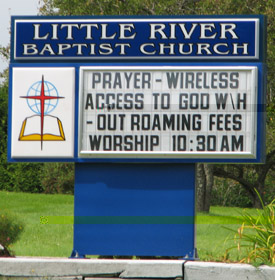I want to apologize to my cantorial colleagues for my imprecision in my blog post on May 6, 2012. In that post, I implied that cantors are less than full-fledged clergy. That is not what I meant to say and I feel very badly for that mistake and the upset that it caused my cantorial colleagues. For the record, I’ve always considered cantors full partners in synagogue work and had the pleasure of having a cantorial partner for a decade when I was in congregational life. Given my views and experience, you can imagine how mortified I was when Cantor Steve Stein, Executive Vice-President of the Cantors Assembly, rightfully called me to account, for which I’m grateful.
My inaccuracy was a reminder about the exponential risks of causing hurt in our wired world. The purpose in my post was to highlight the recent change that Hebrew Union College made from “investing” to “ordaining” cantors, and a similar change under discussion at The Jewish Theological Seminary. Regardless of title, cantors have been and will continue to be full-fledged clergy and in synagogues where cantors and rabbis work as partners, it is incredibly positive for them and the congregation.
I’ve invited Cantor Stein to share the long-standing efforts that the Cantors Assembly has made to re-imagine the American Cantorate. And I thank him for taking the time to educate me and the broader public on these efforts. Rabbis, educators and all synagogue professionals can learn from the vision of the Cantors Assembly.
Rabbi Hayim Herring
I am grateful to Rabbi Herring for affording me the opportunity to share these thoughts on behalf of the Cantors Assembly. Our organization and profession has been keenly aware for some time that what synagogues are seeking relative to the role their Hazzan plays in the daily lives of congregants, along with the style of music worshipers want to hear during services, has changed dramatically. We further recognize the vulnerability of our sacred profession as a result of the genuine economic challenges facing our congregations.
Moving forward, we believe that synagogues will somehow find the money, as they have always done, to engage what is known in sports as an “impact player.” This is an individual capable of genuinely enriching and uplifting the lives of congregants through her/his talent, creativity, knowledge, charisma and dedication.
We have approached the current challenges in a number of ways. Some of those steps are as follow:
1) A growing number of colleagues are leading “Friday Night Live” type services in their congregations. Methodology and repertoire for doing so are covered in sessions at our annual conventions as well as through our extensive and growing continuing education program.
2) Students enrolled in the H.L. Miller Cantorial School at the Jewish Theological Seminary are encouraged to simultaneously earn a Masters degree in Jewish education.
3) Cantors in the field and those currently enrolled as students are increasingly focusing on pastoral studies to enable them to be of greater assistance to their rabbinic colleagues in caring for congregants.
4) We are beginning to envision the Hazzan as the synagogue’s artistic director with further training in areas such as Drama and Storahtelling.
5) We have engaged an outside consulting firm to interview Rabbis and synagogue lay leaders to elicit their input relative to how the Hazzan can be most effective and helpful.
These are but a few examples of the ways in which we have begun to fashion a new vision and direction for the Cantorate. To be sure, the challenges are significant. But, rather than fear change, we embrace it as an opportunity to expand the ways in which we touch the lives of the countless adults and youngsters it is our good fortune and privilege to serve.
Hazzan Stephen J. Stein
Executive Vice President, Cantors Assembly
